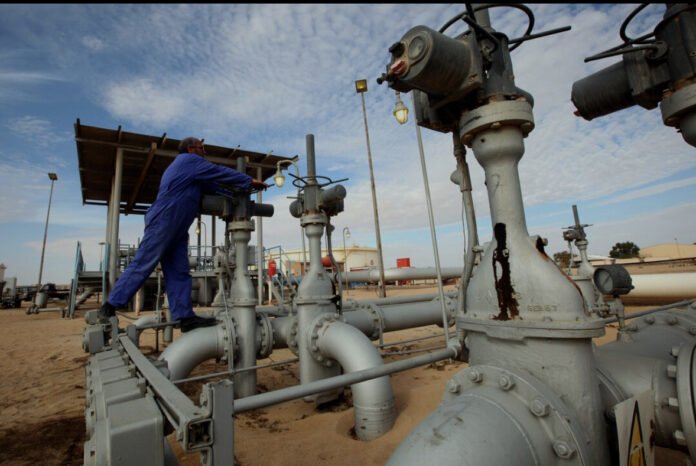TRIPOLI, (HAN) — Libya’s Central Bank announced on Thursday that the country generated 79.4 billion Libyan dinars (approximately $14.65 billion) in revenue from oil and gas exports during the first nine months of 2025, signaling a slow but steady recovery in the nation’s hydrocarbon-dependent economy.
The North African country, which relies heavily on oil exports for over 90 percent of government revenue, has faced years of political instability and economic disruption since the fall of the Gaddafi regime in 2011. In recent years, rival factions and intermittent militia activity have disrupted oil production, blocked pipelines, and caused temporary shutdowns of major oil terminals along the Mediterranean coast. Despite these challenges, the latest figures suggest an improvement in production levels and a partial stabilization of the sector.
Analysts note that while Libya’s oil and gas revenues are gradually increasing, the sector remains vulnerable to political and security challenges. “The revenue numbers are encouraging, but Libya’s oil industry is still susceptible to factional tensions and operational setbacks,” said Omar El-Badri, an energy analyst based in Tripoli. “Sustained economic growth will require long-term political reconciliation, investment in infrastructure, and improved security around oil fields.”
Libya’s key oil export terminals, including Ras Lanuf, Es Sider, and Zueitina, have historically been targets of protests, blockades, and militia interference, which can halt production for weeks at a time. Government officials have been negotiating with local tribal leaders and armed groups to ensure uninterrupted access to these facilities. In addition, sporadic attacks on pipelines in the southern oilfields have occasionally forced companies to suspend operations, highlighting the fragility of Libya’s energy sector.
The Central Bank did not provide a detailed breakdown of production volumes or the specific destinations of Libya’s crude and natural gas exports. However, European countries such as Italy and Spain, along with Turkey, remain among Libya’s largest trading partners in the energy sector. Analysts say that global energy market conditions, including fluctuating oil prices, international demand, and OPEC production quotas, also play a crucial role in determining Libya’s earnings.
In comparison with previous years, the revenue figure represents a moderate recovery but remains below pre-conflict levels. Prior to the 2011 civil war, Libya’s annual oil and gas revenue often exceeded $30 billion, highlighting the long road to full economic recovery. The war and subsequent political fragmentation severely curtailed production, and it took years for output to reach levels sufficient to sustain national revenue.
Economists emphasize that while hydrocarbons remain the backbone of Libya’s economy, diversification into sectors such as agriculture, manufacturing, and renewable energy will be critical for long-term stability. International organizations and development partners have repeatedly urged Libyan authorities to implement reforms and invest oil proceeds into social services, education, and infrastructure to benefit the wider population.
The revenue growth also comes at a time when Libya faces mounting fiscal pressures, including rising public sector wages and the need to fund basic services in both eastern and western regions of the country. The government has faced criticism for delayed salary payments, which have fueled public discontent in cities such as Tripoli, Benghazi, and Misrata.
Despite ongoing political fragmentation and occasional disruptions, Libya’s oil and gas sector continues to underpin the nation’s fragile economy. Analysts caution, however, that maintaining growth will require improved political coordination, investment in security, and transparent management of energy revenues. Government authorities and international observers alike are closely monitoring developments, hoping that continued revenue growth will create a foundation for broader economic stability in the coming years.





